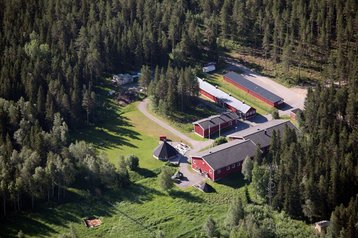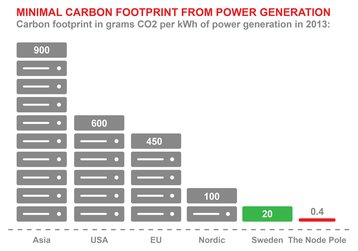The Swedish government has all but removed the electricity tax levied on data centers, in a bid to make its IT sector competitive against neighboring countries.
The 97 percent tax cut will reduce overall electricity prices by around 40 percent for any existing or new data center greater than 0.5MW, from January 2017. The move comes in response to pressure from the industry, and follows the recommendations of a study commissioned by the Swedish Ministry of Finance, which reported in 2015.
Swede victory
Sweden has high energy taxes in a bid to reduce waste, but has given a tax break for manufacturing industry which needs to compete with other firms abroad. Following the recommendations of the Ministry of Finance, the government has now reduced the energy tax paid by data centers from $0.02-$0.03 (0.194-0.295 SEK) per kWh to $0.0006 per kWh. To qualify, the data center must have 0.5MW capacity for its IT, excluding any energy used in cooling systesms.
”This Parliamentary decision sends a clear message that Sweden is serious about becoming the green home of the internet and taking global cloud service leadership over the short and long term”, comments Peter Ericson, chairman of The Node Pole, a local hub which was recently bought by two local energy utilities.
The energy taxes are not designed to reduce emissions, as Sweden is almost completely powered by renewable electricity. From January, this will be available for a total cost, including the grid and tax,of around 3.5-4.5 c/kWh, said Rick Abrahamsson, industry expert at the Swedish energy company Vattenfall: “This is a very strong case, most likely the strongest in the world compared to average total electricity prices for running data centers.”
The Node Pole is a local hub with land near Luleå, a city in the North of Sweden, where Facebook has built a dat acenter campus. By February 2017, the Node Pole will be owned by Vattenfall and Skellefteå Kraft, who intend to extend it to become a more nationwide endeavor.


